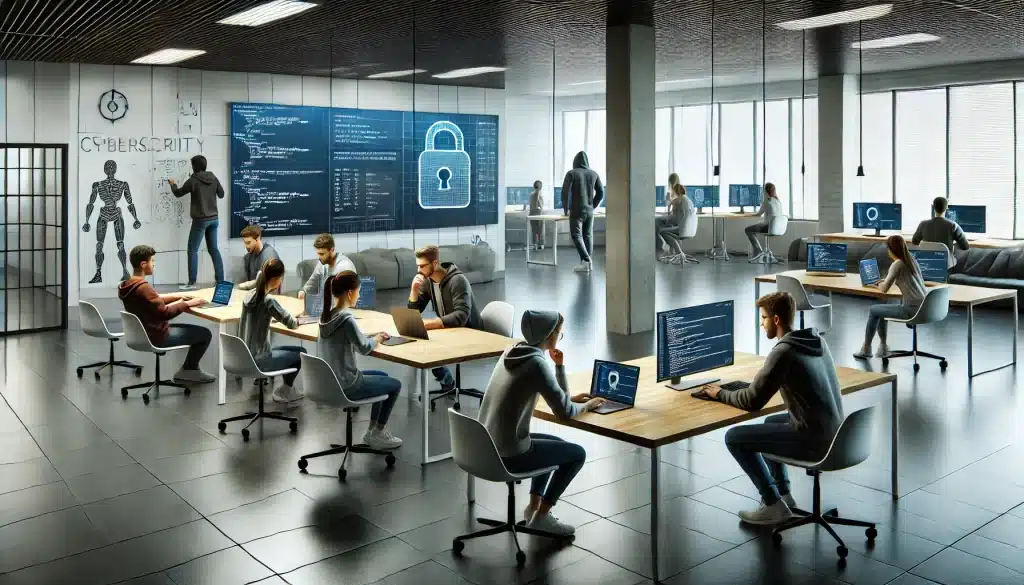Essential Cyber Security Skills for a Successful Career
In the rapidly evolving field of cyber security, possessing the right cyber security skills and competencies is crucial for success. Whether you’re just starting or looking to advance in your career, understanding and developing these essential skills will help you stand out in the competitive job market. Chapter 5 of our eBook, “Starting Your Cyber Security Career: Building a Successful Career in Cyber Security,” explores the critical technical and soft skills needed to excel in this dynamic field. Let’s dive into the essential skills and competencies for a successful cybersecurity career.
Technical Skills
1. Networking
A solid understanding of networking concepts is fundamental for any cybersecurity professional. This includes knowledge of network protocols, IP addressing, subnetting, and routing.
- Key Areas to Focus On:
- TCP/IP, DNS, DHCP
- Firewalls and VPNs
- Network troubleshooting and monitoring tools
2. System Administration
Proficiency in managing and securing various operating systems, such as Windows, Linux, and macOS, is essential. Understanding how these systems work and how to protect them from threats is a core competency.
- Key Areas to Focus On:
- User and group management
- Patch management and system updates
- Security configurations and hardening
3. Programming and Scripting
While not all cyber security roles require programming skills, having a basic understanding can significantly enhance your ability to identify and mitigate threats. Familiarity with scripting languages is particularly beneficial for automating tasks.
- Languages to Learn:
- Python
- Bash
- PowerShell
4. Cyber Security Tools and Technologies
Proficiency with various cyber security tools and technologies is crucial for detecting, preventing, and responding to threats. These tools help streamline and automate security processes.
- Tools to Master:
- SIEM (Security Information and Event Management) systems like Splunk or QRadar
- IDS/IPS (Intrusion Detection/Prevention Systems)
- Vulnerability scanners like Nessus
- Penetration testing tools like Metasploit and Burp Suite
Analytical and Problem-Solving Skills
1. Threat Analysis
The ability to analyze and understand potential threats is vital. This involves identifying vulnerabilities, assessing risks, and determining the best ways to mitigate these threats.
- Key Areas to Focus On:
- Threat modeling
- Risk assessment
- Incident response
2. Incident Response
Quickly and effectively responding to security incidents is a critical skill. This includes detecting incidents, containing the damage, eradicating the cause, and recovering from the attack.
- Key Areas to Focus On:
- Incident response planning
- Forensic analysis
- Post-incident review and improvement
3. Forensics
Understanding digital forensics helps investigate security breaches, gather and analyze evidence, and understand the attack’s impact.
- Key Areas to Focus On:
- Data recovery and analysis
- Evidence handling and chain of custody
- Forensic tools and techniques
Soft Skills
1. Communication
Effective communication is essential in cyber security. You need to be able to explain complex technical issues to non-technical stakeholders and collaborate with team members.
- Key Areas to Focus On:
- Report writing
- Presentations
- Interpersonal communication
2. Critical Thinking
Cybersecurity professionals must think critically and creatively to solve complex problems. This involves analyzing situations from multiple angles and developing practical solutions.
- Key Areas to Focus On:
- Analytical thinking
- Creativity in problem-solving
- Decision making
3. Attention to Detail
A keen eye for detail is crucial in cyber security. Minor oversights can lead to significant vulnerabilities, so thoroughness and precision are essential.
- Key Areas to Focus On:
- Thorough analysis
- Precision in execution
- Vigilance in monitoring
Continuous Learning and Staying Updated
Cyber security is constantly evolving, with new threats and technologies emerging regularly. Staying updated with the latest trends, tools, and techniques is vital for maintaining relevance and effectiveness.
1. Industry News and Trends
Regularly follow industry news and trends to stay informed about the latest developments in cyber security. This includes reading blogs, subscribing to newsletters, and following thought leaders on social media.
- Key Sources:
- Krebs on Security
- The Hacker News
- Dark Reading
2. Training and Certifications
Enhancing your skills through training and obtaining certifications can significantly boost your career prospects. Certifications validate your knowledge and commitment to the field.
- Recommended Certifications:
- CompTIA Security+
- Certified Information Systems Security Professional (CISSP)
- Certified Ethical Hacker (CEH)
- Certified Information Security Manager (CISM)
3. Practical Experience
Gaining practical experience through internships, volunteering, and hands-on projects is invaluable. Building a home lab or participating in cyber security competitions can provide practical skills and knowledge.
- Key Activities:
- Internships and volunteering
- Building a home lab
- Participating in Capture the Flag (CTF) competitions
Conclusion
Developing the essential skills and competencies outlined in this chapter will help you build a successful career in cyber security. From technical and analytical abilities to soft skills and continuous learning, each aspect is crucial for staying competitive and effective in this dynamic field.
For more detailed insights and guidance, download our free eBook, “Starting Your Cyber Security Career: Building a Successful Career in Cyber Security,” at https://lufsec.com/cyber-security-career-ebook. Stay tuned for more chapters as we explore this exciting and rewarding field.

